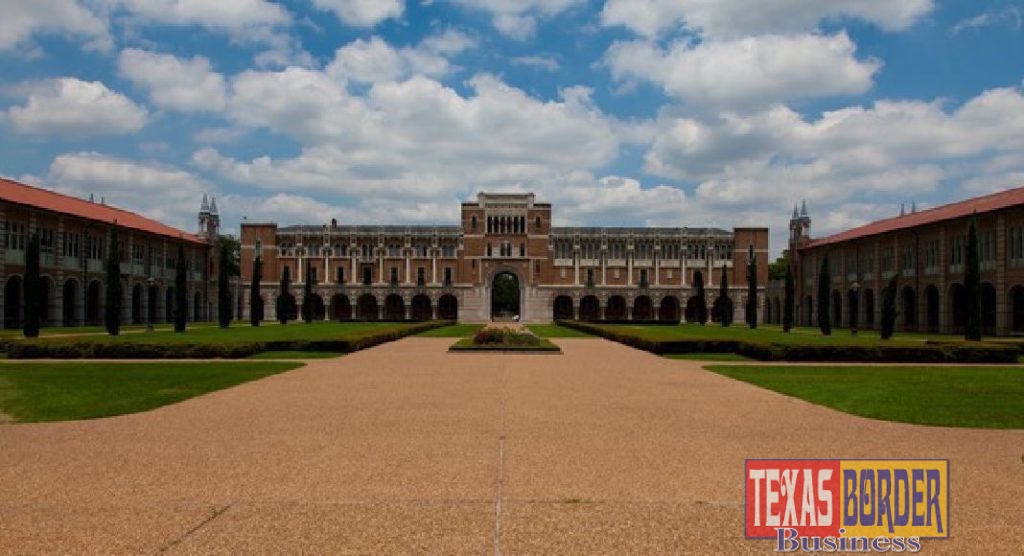
Texas Border Business
HOUSTON – William Marsh Rice University has paid the United States more than $3.7 million to resolve claims it engaged in a pattern and practice of improperly charging National Science Foundation (NSF) research and development awards, announced U.S. Attorney Ryan K. Patrick.
Congress created the independent federal agency in 1950 “to promote the progress of science; to advance the national health, prosperity, and welfare; to secure the national defense…”
NSF funds support approximately 24% of all federally-supported basic research that colleges and universities conduct in the United States. As of March 2020, Rice had 215 active NSF research grants. University grantees, including Rice, carry out NSF-sponsored research under uniform administrative rules. They specify an expense may only be charged to an award if it is allocable – if it is incurred specifically for the award, if it benefits the award or if it is necessary to the overall operation of the awardee and is assigned in part to NSF in accordance with the other award terms and conditions.
In 2016, authorities began an investigation of Rice’s suspected misuse of NSF grant funds. Specifically, Rice allegedly budgeted for graduate student stipends in its research grant proposals but then used a portion of the money to pay the students to perform teaching duties unrelated to the NSF awards.
As an NSF grant awardee, Rice falsely certified on each proposal, and each time it requested a payment under the grant, that it was complying with NSF award terms and conditions. Those terms and other applicable regulations require each grant recipient adhere to specific federal cost principles which state that costs must be necessary, reasonable and allocable to be properly charged to an award. Rice knowingly failed to follow these requirements.
From Nov. 18, 2006, through Sept. 30, 2018, Rice knowingly engaged in a pattern and practice of improperly charging graduate students’ stipends, tuition remission and related facilities and administrative charges to NSF awards. These charges were actually used in part for time the graduate students spent performing teaching duties unrelated to Rice’s NSF research and development awards. The activities were not specifically incurred for the research awards, did not benefit those awards and otherwise were not allowable or allocable to the NSF awards, in violation of NSF award terms and conditions and the False Claims Act.
To settle the allegations, Rice has agreed to pay $$3,754,186– double the loss to the United States.
“The NSF is a strong supporter of basic research at colleges and universities,” said Allison Lerner, NSF Inspector General. “However, the Agency expects grant recipients to follow the federal cost principles. Expenses charged to grants must be allowable, allocable and reasonable. I commend the U.S. Attorney’s Office for their work on upholding federal grant rules in this case.”
The settlement resolved the claims without a determination of liability.
The NSF – Office of Inspector General conducted the investigation. Assistant U.S. Attorney Jill Venezia and Andrew Bobb handled the matter.















